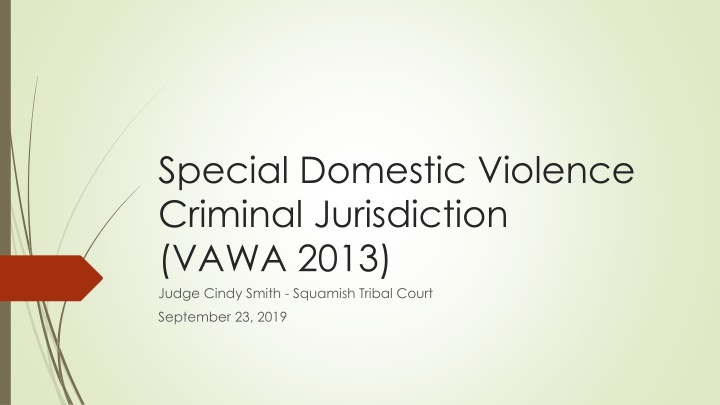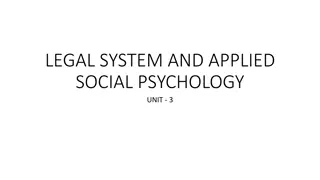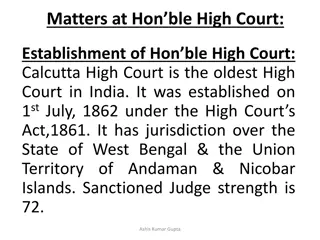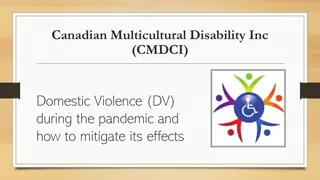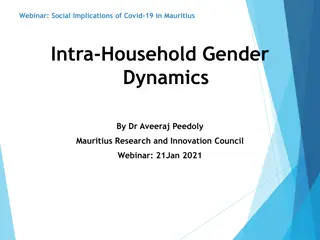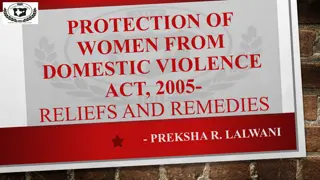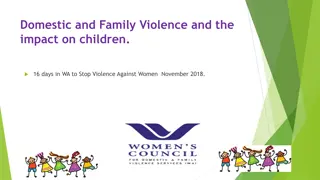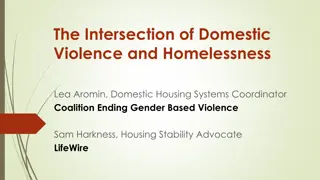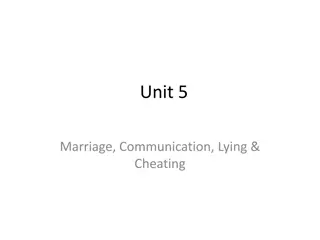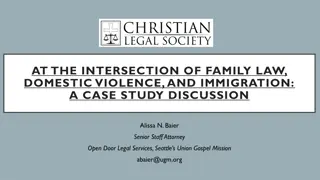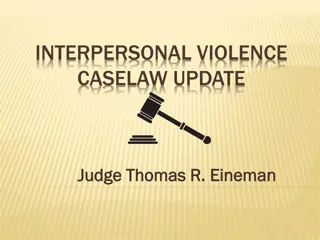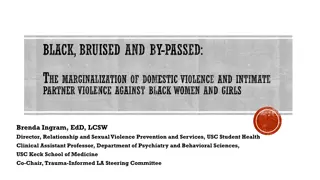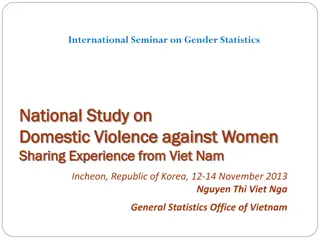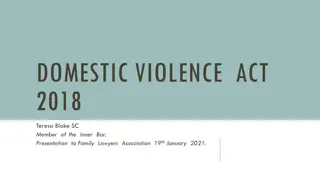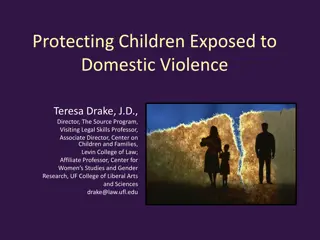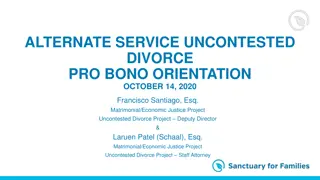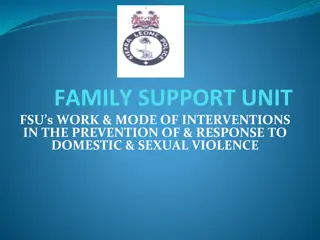Special Domestic Violence Criminal Jurisdiction under VAWA 2013
Under the Violence Against Women Reauthorization Act of 2013, tribal courts can exercise criminal jurisdiction over domestic violence, dating violence, and violations of protection orders. This act affirms tribal governments' authority to prosecute non-Indians who commit such offenses on tribal lands, with specific requirements for victim status and defendant ties to the tribe
Download Presentation

Please find below an Image/Link to download the presentation.
The content on the website is provided AS IS for your information and personal use only. It may not be sold, licensed, or shared on other websites without obtaining consent from the author.If you encounter any issues during the download, it is possible that the publisher has removed the file from their server.
You are allowed to download the files provided on this website for personal or commercial use, subject to the condition that they are used lawfully. All files are the property of their respective owners.
The content on the website is provided AS IS for your information and personal use only. It may not be sold, licensed, or shared on other websites without obtaining consent from the author.
E N D
Presentation Transcript
Special Domestic Violence Criminal Jurisdiction (VAWA 2013) Judge Cindy Smith - Squamish Tribal Court September 23, 2019
Rates of Intimate Partner Violence in Indian Country 43% of American Indian and Alaska Native Men experience IPV 55% of American Indian and Alaska Native Women experience IPV 42% of American Indian and Alaska Native Women experience severe IPV 90% of American Indian and Alaska Native Women report inter-racial perpetrator 85% of American Indian and Alaska Native men report an inter-racial perpetrator
Violence Against Women Reauthorization Act of 2013 (VAWA 2013) - SDVCJ Affirms the inherent sovereign authority of Indian tribal governments to exercise criminal jurisdiction over all persons, including non-Indians who violate qualifying protection orders or commit domestic or dating violence against Indian victims on tribal lands. SDVCJ recognizes concurrent jurisdiction along with the federal government, a state, or both, and does not change existing federal or state jurisdiction in Indian Country. Enacted in 2013, began March 2015
Tribes can exercise SDVCJ over 3 categories of criminal conduct Domestic violence Dating violence Violations of certain protection orders
Additional requirements The victim must be an Indian; The crime must take place in the Indian Country of the prosecuting tribe; and The non-Indian defendant must have sufficient ties to the Indian Tribe, by: Residing in the Indian Country of the participating tribe; Being employed in the Indian Country of the participating tribe; or Being a spouse, intimate partner, or dating partner of a tribal member, or an Indian who resides in the Indian Country of the participating tribe.
Included in VAWA Tribes can refer to federal law, write their own code, or a combination of both SDVCJ defendants are prosecuted as a matter of tribal law, not federal Tribes that meet the statutory requirements of VAWA can exercise SDVCJ jurisdiction. In summary, Tribes can, Decide which crimes to include in the 3 categories Define each of the individual offenses Exercise their sovereign power to investigate, prosecute, convict and sentence
VAWA Requirements for SDVCJ VAWA requires that non-Indian SDVCJ defendants have certain rights. Implementing tribes must: Guarantee all rights under the Indian Civil Rights Act (ICRA). Provide indigent defendants with effective assistance of a licensed defense counsel. Ensure any Judge presiding over SDVCJ cases has sufficient legal training. Make all criminal laws, rules of evidence, and rules of criminal procedure publically available.
VAWA Requirements for SDVCJ (part 2) Continued Give defendants timely notice of their rights, including their right to habeas corpus and to petition for stay of detention. Maintain a record of the criminal proceeding, including an audio or other recording. Give the defendant a right to trial by an impartial jury drawn from a jury pool that includes non-Indians. Provide all other rights whose protection is necessary under the Constitution of the United States
SDVCJ Implementation Challenges Can be prohibitively expensive for some tribes. Detention issues and costs create Can require significant revisions to tribal codes, policies, procedures and occasionally constitutions.
SDVCJ Implementation Challenges (part 2) Can require commitment of resources to meet VAWA requirements. Jury costs Criminal Defense Treatment costs (Batter s treatment, substance abuse treatment) Probation Prosecution Training for judges Law Enforcement Training Incarceration costs
Current VAWA - SDVCJ Limitations Prevents tribes from prosecuting crimes against children. Prevents tribes from prosecuting alcohol and drug crimes. Prevents tribes from prosecuting other crimes committed in course of assault. Prevents tribes from prosecuting crimes that occur within criminal justice system (endangering law enforcement, undermining integrity) Jurisdictionally complex.
SDVCJ Successes Can lead or promote positive tribal reforms. Can create success beyond SDVCJ, especially in inter- tribal collaboration. Promotes better relationships with other jurisdictions.
Resources National Congress of American Indians Resources VAWA 2013 s Special Domestic Violence Criminal Jurisdiction Five-Year Report http://www.ncai.org/resources/ncai- publications/SDVCJ_5_Year_Report.pdf Special Domestic Violence Criminal Jurisdiction overview webpages http://www.ncai.org/tribal-vawa/sdvcj-overview
